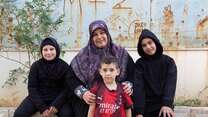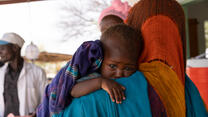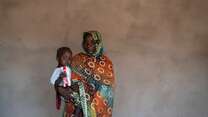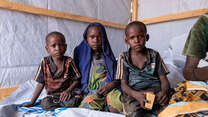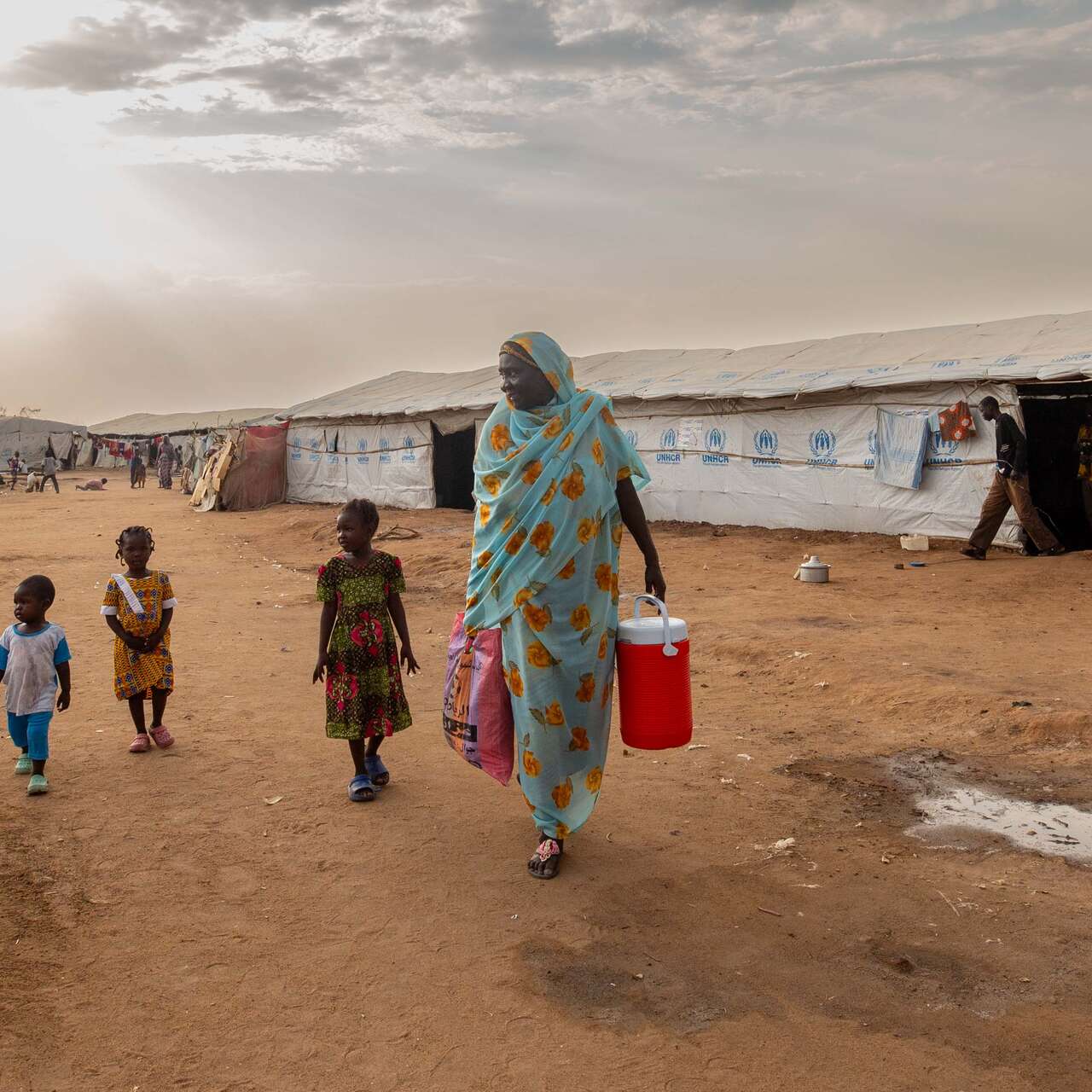
Each year, the International Rescue Committee’s (IRC) Emergency Watchlist analyzes which countries are most likely to experience a new or worsening humanitarian crisis. For the second consecutive year, Sudan tops the list as the country’s collapse accelerates amidst a brutal civil war that has a devastating impact on civilians.
Before the war erupted in April 2023, Sudan was already experiencing a severe humanitarian crisis that left 15.8 million people in need of humanitarian aid. Two years of war have gravely exacerbated these conditions, displacing over 12 million people and leaving 30.4 million people—more than half of Sudan’s population—in need of humanitarian support.
Sudan now represents the largest and fastest displacement crisis in the world. It is also the largest humanitarian crisis ever recorded.
Learn more about this ongoing crisis below.
What do the people of Sudan face today?
Two years of civil war has decimated Sudan. Civilians are subject to frequent attacks and human rights violations while the country’s health care system has collapsed and life-threatening famine sets in. Attacks on humanitarian aid workers have made it difficult to deliver lifesaving aid to some of the most fragile and vulnerable communities in the world.
War continues to rage in Sudan
Sudan’s civil war, waged between the Sudanese Armed Forces (SAF) and the Rapid Support Forces (RSF), erupted on April 15, 2023, plunging the country into chaos. Civilians bear the brunt of the conflict; sexual violence is widespread, fighters on both sides regularly target civilians and infrastructure, and child soldier recruitment is common. Human rights groups have accused fighters in Darfur of ethnic cleansing.
Tens of thousands have been killed, with indiscriminate attacks on civilians being reported.
Rather than advancing diplomacy, outside powers are fueling the conflict by funneling weapons to their allies. SAF and RSF leaders appear to believe that continued fighting best serves their interests, leaving Sudan on a trajectory toward catastrophic humanitarian collapse.
“Enough is enough. More words can no longer capture the catastrophic toll of this devastating conflict on over 30 million lives; the failure of diplomatic actors to respond effectively has allowed Sudan’s crisis to worsen beyond measure,” says IRC East Africa Advocacy Coordinator, Anne Marie Schryer.
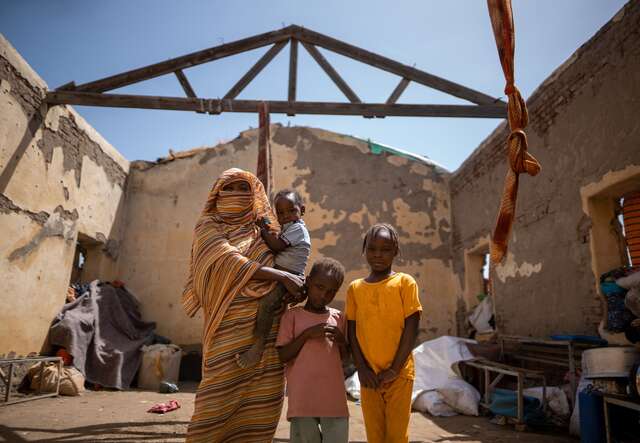
Sudan is the world’s largest and fastest displacement crisis
The war in Sudan has created extreme levels of displacement, both internally and across Sudan’s borders. More than 12 million people have been displaced since April 2023, nearly 4 million people—mostly women and children—who have fled to neighboring countries.
Compounding the crisis, heavy rains and flooding from June 2024 to September 2024 have affected nearly 600,000 people, displacing over 172,500 individuals and causing severe destruction of homes and infrastructure, and contributing to a resurging outbreak of cholera. The worst-hit areas, including Red Sea and North Darfur, face heightened risks of famine, further exacerbating the challenges for residents already grappling with conflict and instability.
While neighboring countries—like Chad and South Sudan—have welcomed Sudanese refugees fleeing conflict, they do not have the resources to meet the urgent humanitarian needs of those arriving across the border without international support.
Famine grips communities
Famine is spreading across Sudan. Violence severely hinders humanitarians’ ability to deliver food where it's needed most. Soaring food prices and a collapse of food supply are having a devastating impact on the people of Sudan.
More than 635,000 people, including in the country’s largest camp for displaced people, are experiencing famine. The severe food shortage also prevents people from getting basic nutrients, putting them at heightened risk of illnesses and infections.
There are more people experiencing catastrophic hunger conditions in Sudan than the rest of the world combined.
“An immediate ceasefire is now more critical than ever to prevent mass deaths resulting from a hunger crisis that is rapidly spreading across Sudan,” says IRC country director for Sudan, Eatizaz Yousif.
A health system on the brink of collapse
The war in Sudan has destroyed the country’s public infrastructure, including the health system. The World Health Organization (WHO) verified at least 119 attacks on health care between April 2023 and October 2024, but the true figure is likely much higher. More than 80% of the country’s hospitals in conflict zones are non-operational, leaving millions without access to essential medical care as disease outbreaks surge.
An estimated 3.4 million children under five are at high risk of epidemic diseases, while cholera death rates in Sudan are now triple the global average.
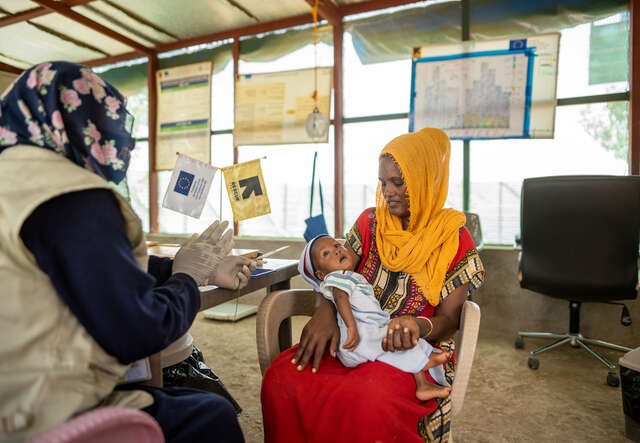
Women and children face heightened risks
The ongoing crisis in Sudan is taking a devastating toll on women and girls. The collapse of critical healthcare services has put new mothers at risk of losing their lives in the months ahead as it has become nearly impossible to access essential reproductive care.
Gender-based violence is escalating. Reports of intimate partner violence, sexual exploitation, abuse and trafficking are widespread, while survivors struggle to access support. Economic hardship has stripped countless women of their livelihoods, forcing many into desperate and exploitative situations, and increasing their vulnerability.
In Darfur, the crisis has deepened amidst ongoing fighting that targets civilians, continued displacement and the declaration of famine. Alarming reports of sexual violence underscore the immense suffering endured by those in dire conditions, revealing the exceptional vulnerability of women and children.
Urgent action is needed to address these atrocities and provide support to those affected.
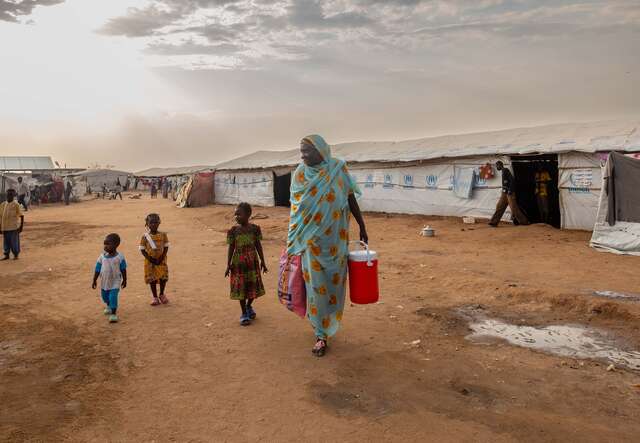
How is the IRC helping in Sudan?
In response to increasing needs, the IRC has scaled up its humanitarian efforts despite immense challenges, including office closures and suspensions due to security concerns. We are supporting Sudanese communities, both within the country and across national borders by delivering:
- An integrated water, sanitation and hygiene (WASH) program;
- Child protection services and support for women and girls, including services for survivors of gender-based violence (GBV);
- Health and nutrition services provided through mobile and static health facilities;
- Livelihood assistance through multi-purpose cash aid to internally displaced persons and members of the communities that host them.
Shortly after conflict broke out in April 2023, the IRC established a presence in Wad Madani, Al Jazirah state where we delivered health and nutrition services to IDPs fleeing Khartoum until we were forced to close the office and relocate our staff. We are currently operational in Blue Nile, Khartoum, Gedaref, River Nile, South Kordofan and White Nile states, and have an office in Port Sudan.
We are delivering direct support to clients in accessible areas of Khartoum, as well as indirect support through our locally-based community partners.
Donate today to support the IRC’s work in Sudan and in more than 40 countries around the world.
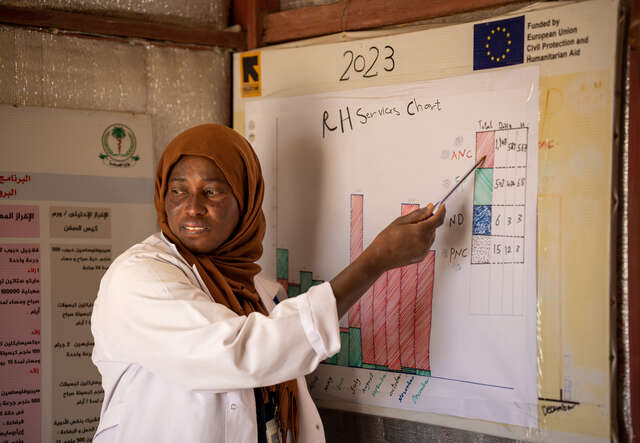
How is the IRC helping Sudanese refugees?
Nearly 4 million asylum seekers have sought refuge in neighboring countries since April 2023. In response, the IRC has scaled up our critical services to support Sudanese refugees, including in Uganda, Ethiopia, South Sudan and Chad—which already hosted 400,000 Sudanese refugees prior to the war.
More than ninety percent of the 700,000 Sudanese refugees who have arrived in Chad since April 2023 are women and children. One-fifth of young children who arrive are experiencing acute malnutrition.
“The fact that women and children make up such a large proportion of the new arrivals in Chad is particularly worrying because they are often the most vulnerable groups in conflict situations,” explains IRC Deputy Regional Director of Central Africa, Aleksandra Roulet-Cimpric. “Women and children are at greater risk of violence, exploitation and abuse, and they may also face difficulties accessing basic necessities such as food, water and healthcare.”
In Chad, the IRC is providing drinking water and running mobile health clinics to attend to the vast health needs of the arriving population. In addition to providing immediate relief, the IRC has scaled up its support in the areas of water, sanitation, and hygiene (WASH), health, and protection. This includes providing access to safe water and sanitation facilities to prevent the spread of disease.
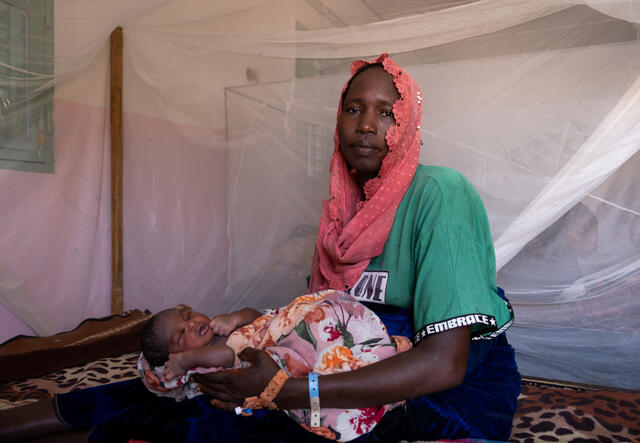
How can I help the people of Sudan?
Donate now to support the IRC's life-changing work in Sudan and worldwide. We are on the frontlines providing critical aid to crisis-affected people in more than 40 countries, including places on the 2025 Emergency Watchlist.
Read more about the top 10 crises the world can’t ignore in 2025 and learn more about the IRC's 2025 Emergency Watchlist.
Stay connected by following the IRC on Instagram, LinkedIn, Facebook, Bluesky and X.
